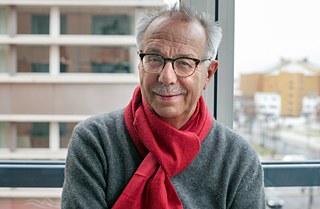Berlinale Bloggers 2018
Seven things you need to know about the Berlinale
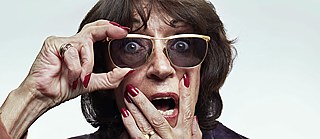
Spectacular, forgotten, memorable and utopian: Why the Berlinale is what it is.
The mushroom heater factor: Defects come up trumps
After Cannes and Venice, the Berlinale is indisputably one of the leading international film festivals. In the merry month of May, Cannes sparkles with glamour, movie stars and great works of cinematic art. And the sun usually shines. Venice, the oldest film festival in the world, basks in the relaxed romantic afterglow of late summer. And the Berlinale? Well, weather-wise, the German capital doesn’t have much to offer in frosty February, most years not even snow. Instead of springtime champagne under palm trees, we’ve got the midwinter shivers on the red carpet, and German beer under outdoor mushroom heaters.
The audience factor: We love what we’ve got
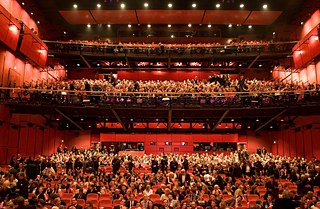
The panoply of movie stars and the glamour effect are comparatively modest in Berlin. And yet with over 330,000 tickets sold last year and half a million moviegoers all told, the Berlinale happens to be the world’s biggest film festival. And the audience love it. How come? A poll taken last year came to the following conclusion: 90% of those surveyed appreciate the good ambiance and out-of-the-ordinary films as well as things that “aren’t offered elsewhere”. On the other hand, they don’t seem to miss things that are hardly to be had at the Berlinale: a mere 1% said they go to the festival to see celebrities. Lucky thing there’s the other 99%!
The shivers factor: Who’s willing to freeze on the red carpet?
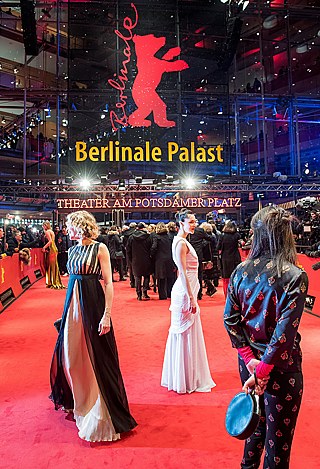
The feminine factor: Gender equality!
If Anna Brüggemann has her way, however, freezing in scanty attire could soon become a thing of the past. On #nobodysdoll the German actress exhorts fellow celebs to waive the customary dress code for the Berlinale défilé: “If you’ve ever experienced first-hand the difference between a night out in a jacket and sneakers or in a skimpy little dress and high heels knows what I’m talking about.” The Berlinale affirms that the fight against sexism and against the iniquities brought to light by the #MeToo movement has long since reached the festival. In the selection process, they were particularly sensitive about sexist scenes, though the issue is “discrimination in general”. As for the gender breakdown: according to this year’s statistics, a third of all the submissions are by women filmmakers. Then again, women filmmakers made only four of the 24 films in competition. And in the 67 Berlinales to date, five Bears have been awarded to women directors, most recently to the Hungarian Ildikó Enyedi for On Body and Soul in 2017.
The political factor…
Some say the Berlinale’s decidedly political bent stems from a complex about its image, that it’s a desperate offensive to make up for what it lacks: no beach, no sunshine, no stars – well then, we’ll go political. The truth is the Berlinale was politicized from the get-go. Started up in 1951 amid the rubble of postwar Berlin as a “window on the free world” and a “cultural bulwark against Bolshevism”, it was marked by the Cold War for decades. It was not until the Wall down that the cultural confrontation ended. Though to this day the desire to make a difference, to shake things up and set things in motion, still flickers behind the festival’s ever-swelling marketing machinery.
... and a bit of dog philosophy
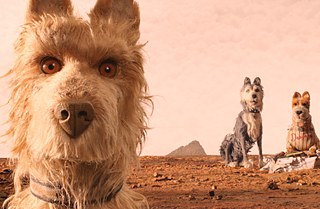
The competition factor: Surprise!
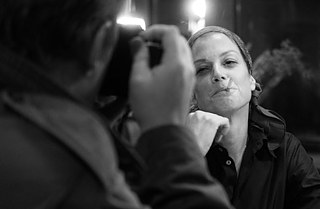
The Dieter factor: All ancient history now?
